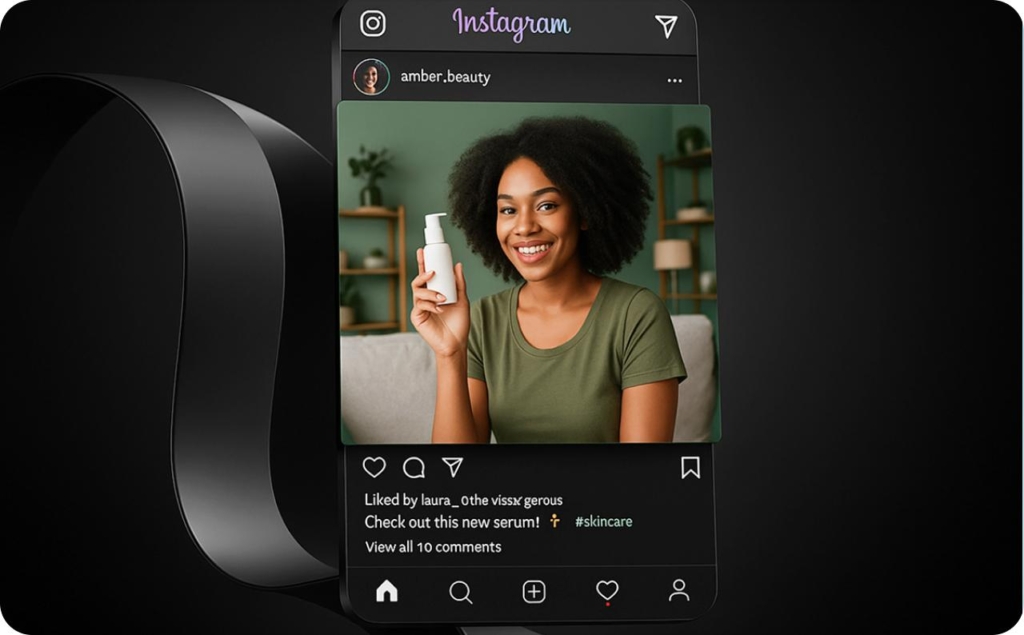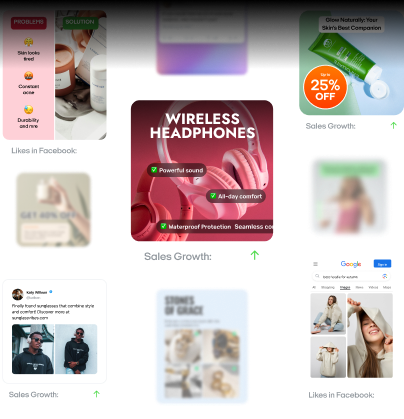AI marketing tools for Shopify: How to choose the best option
Want to automate your Shopify marketing? Zeely AI explores top AI marketing tools, comparing features and benefits to help you pick the best fit for your online store.
If you’re spending hours writing product descriptions, setting up email campaigns, or answering the same customer questions on repeat, you’re not just wasting time. You’re leaving money on the table.
AI marketing tools for Shopify are built to change that. These tools use automation and machine learning to handle the heavy lifting, so you can focus on growing your store, not managing every detail by hand. From personalized product recommendations to real-time pricing updates and 24/7 customer chat, AI gives your storefront a smarter, faster engine behind the scenes.
Shopify’s rapid growth proves why efficiency matters. According to Statista, the platform’s annual revenue has climbed every year since going public in 2015, surpassing $7 billion in 2023. That success comes from pairing subscription services with merchant-focused solutions — exactly where AI tools shine.
Here’s the simple truth: AI helps you sell more with less effort. Instead of reacting manually to every shopper’s action, these tools learn from behavior patterns, then optimize what each visitor sees, reads, or clicks. That leads to higher conversions, bigger order values, and more loyal customers.
Want to run high-converting ads without hiring a designer?
- Zeely AI makes that possible: drop in a product URL and get scroll-stopping video and static creatives in minutes. Need AI-written product descriptions?
- Shopify Magic has you covered. Looking for personalized email flows that adjust in real time?
- Klaviyo delivers.
- For automated support or quizzes that capture leads while you sleep, tools like Tidio and Octane AI plug right into the Shopify ecosystem.
The best part? These tools work together. They eliminate repetitive tasks, deliver consistent customer experiences, and scale faster, even on a budget. Whether you’re running your store solo or managing a team, this guide will show you how to use Shopify AI tools to personalize marketing, streamline workflows, and boost sales automatically.
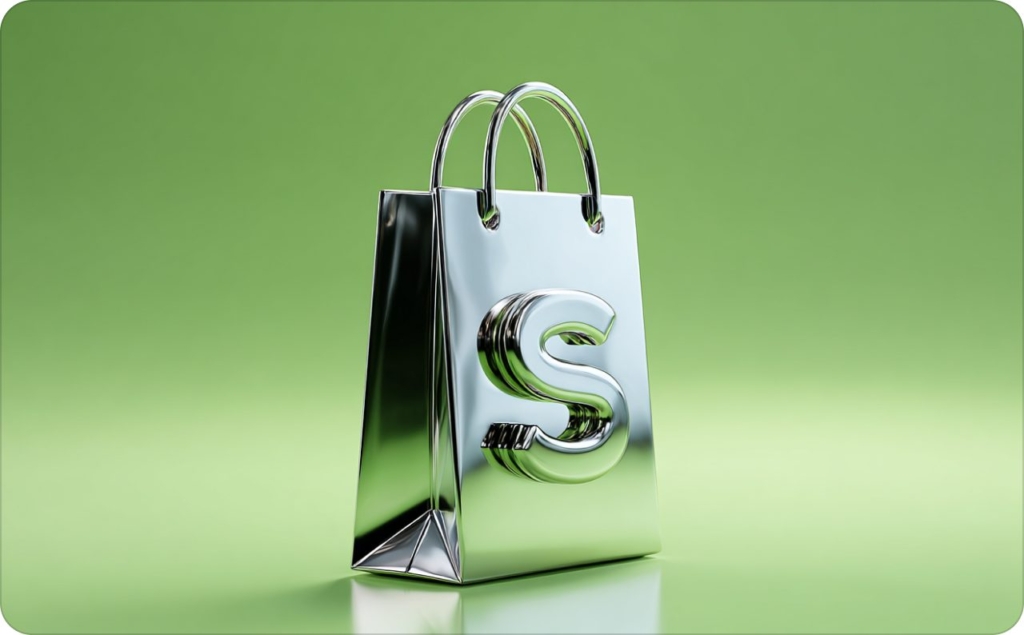
What is AI marketing for Shopify?
If you’re still manually writing product descriptions or guessing when to email customers, you’re doing work AI could handle better and faster. For many Shopify merchants, the biggest hurdle isn’t ambition — it’s time, consistency, and knowing what actually works. That’s where AI marketing tools step in.
AI marketing for Shopify refers to a range of apps and platforms that use machine learning, predictive analytics, and content automation to make your store more efficient and more profitable. These tools analyze data in real time, automate repetitive tasks, and deliver tailored experiences that help you sell more without scaling your workload.
Think of machine learning as your behind-the-scenes assistant. It studies how shoppers behave, what they ignore, what they buy, then adjusts marketing strategies automatically. That’s how tools generate personalized recommendations at scale, without needing you to set rules for every scenario.
One popular example is Shopify Magic, a built-in AI tool that writes product descriptions for you. It pulls from product features and uses context-aware language to create copy that’s consistent, clear, and sales-ready. You don’t just save time, you get optimized content that feels tailored to your brand.
Then there are AI chatbots like Tidio and Octane AI, which provide 24/7 customer support, recover abandoned carts, and guide visitors toward purchases in real time. These bots work alongside your team and help reduce customer service pressure while keeping your buyers engaged.
On the analytics side, tools like Klaviyo use predictive modeling to forecast when a customer is most likely to make a purchase. Based on that insight, the platform automatically sends emails or offers at the right moment. Behind the scenes, it’s also segmenting your customers by engagement level, purchase history, and lifetime value, so you can target each shopper with precision.
Some tools even handle dynamic pricing, adjusting product costs based on demand, stock levels, or competitor activity. These pricing engines help you stay competitive and profitable without constant manual updates.
You don’t need to install everything at once. Most AI tools for Shopify are modular, meaning you can start with one, like a chatbot or email automation tool, and expand over time. This flexibility makes it easy to integrate AI solutions gradually, whether you’re a solo founder or running a growing team.
Key benefits & pain points addressed by AI Tools
AI tools for Shopify help you sell smarter, work faster, and spend less. That’s the core value, cutting the manual grind while boosting conversions, efficiency, and customer experience.
Running a Shopify store means juggling emails, pricing, support, and content while trying to scale. You’re not alone in seeking relief: HubSpot reports 74 % of professionals already use at least one AI tool at work, up from just 35 % last year. The adoption curve proves merchants see tangible gains.
AI delivers those gains by trimming busywork. Drop a product URL into Zeely AI and receive AI Shopify video ads in minutes — no designer, no delay. One merchant rolled out 15 new ads in a single afternoon, then watched conversions climb while their hands stayed free for strategy.
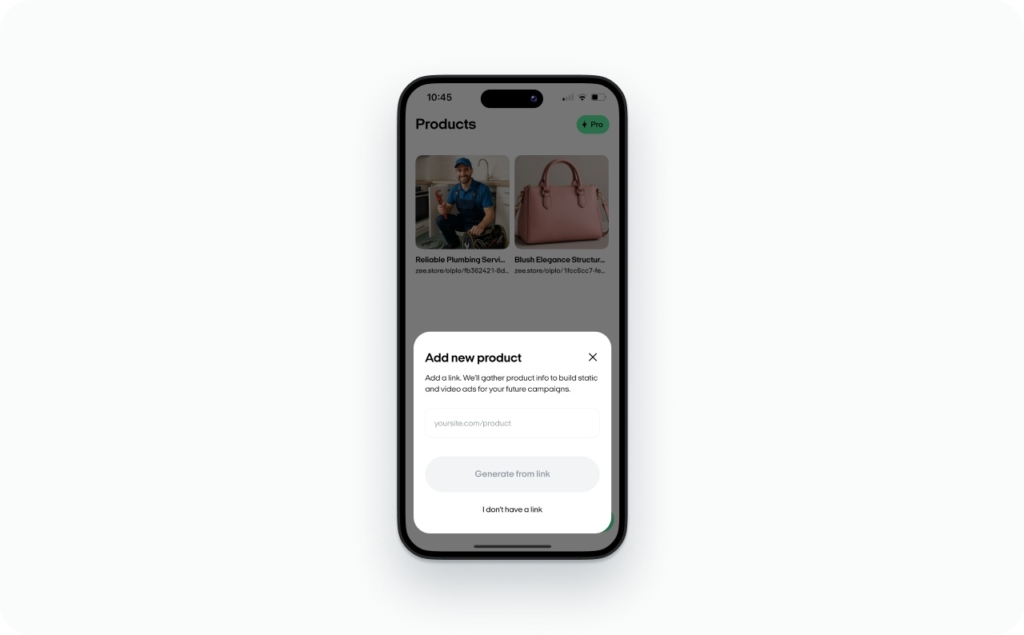
You don’t need to install a full suite of tools to see results. Even one solution, like a chatbot or automated email tool, can deliver value fast. Most platforms are built for non-technical users, so you can set them up in minutes with zero coding or developer support.
Personalization is one of AI’s biggest strengths. Tools like Klaviyo track behavior and send emails tailored to each customer. Instead of generic blasts, shoppers get offers that match their interests, which often leads to 10–30% better conversion rates.
Customer support is another major pain point. AI-powered chatbots like Tidio and Octane AI respond instantly, handle FAQs, and even recover abandoned carts. They help reduce tickets and engage visitors, especially when your team is offline.
AI also makes pricing more strategic. With dynamic pricing tools, your store can adjust product costs based on inventory levels, demand, or competitor data. That means better margins and fewer missed sales, without constant manual updates.
Beyond results, AI helps reduce your operational costs. Instead of hiring a bigger team, you can automate high-effort tasks like campaign triggers, segmentation, or creative production. Most tools offer free tiers or affordable pricing, making them cost-effective AI solutions for Shopify brands of all sizes.
Many merchants see measurable improvements within the first two weeks — fewer support issues, higher email engagement, and faster ad deployment. The tools scale as your store grows, giving you flexibility without increasing headcount.
Of course, AI isn’t magic, it won’t replace your strategy or brand voice. But it’s built to execute faster and with more consistency. The key is to match the right tool to the right task, so your store becomes more agile, your team stays focused, and your results improve on autopilot.
Now that you’ve seen how AI solves real eCommerce problems, let’s explore the top tools making this possible in 2026 and how to choose the best fit for your store.
AI marketing tools dominate Shopify in 2026
AI marketing tools for Shopify do more than shave minutes off your to-do list. They automate the levers that raise revenue. Dynamic pricing, predictive email, and 24/7 chat now run in the background, guided by real-time data. These “best AI-driven Shopify apps” address every pain point a merchant feels: manual workflow overload, inconsistent customer experiences, integration headaches, and tight budgets. With subscription-friendly pricing and plug-and-play installs, the 2026 landscape lets even solo founders compete with enterprise-level personalization and speed.
Beyond rules: How smart apps learn in real time
Traditional Shopify plug-ins follow static rules. AI marketing tools go further by reading browsing paths, purchase history, and inventory signals, then adjusting copy, price, or support scripts automatically. That learning loop drives higher conversions and bigger average orders without extra headcount. Because each decision is data-driven, shoppers get relevant offers, while merchants gain a self-optimizing engine that keeps improving with every click and sale.
Rapid-fire examples that cut work hours
- Zeely AI use AI advertising generator and boost Shopify sales by turning any product URL into scroll-stopping videos and static ads in minutes — no designer needed
- Klaviyo AI builds predictive email flows that trigger on behavior, boosting repeat purchases
- Tidio and Octane AI answer questions, recover carts, and run quizzes while you sleep
- Shopify Magic auto-writes product descriptions that match your brand voice.
All five integrate with a few clicks, require zero code, and start delivering measurable ROI almost immediately — ideal for lean teams
Score before you buy: A four-point checklist
Evaluate every AI option with a simple 1–5 score in four areas: ROI visibility, one-click integration, automation depth, and scalable pricing. A score of 1 signals “basic,” 3 means “meets daily needs,” and 5 is “best-in-class.” Confirm the vendor posts case studies, a GDPR-compliant data policy, and a support SLA under 24 hours. Most tools offer free trials; track results for at least one sales cycle before locking into a paid plan.
Snapshot matrix for quick comparison
| Tool | Best Use | Key AI Feature | Integration | From Price | Rating |
| Zeely AI | Ad creatives | Video+copy generation | Plug-in link | $19/mo | 4.8 |
| Klaviyo AI | Email flows | Predictive segments | Native | Free+ | 4.6 |
| Shopify Magic | Content | Auto descriptions | Built-in | Incl. | 4.5 |
| Tidio | Support | AI chat + quizzes | Plug-in | Free+ | 4.7 |
| Octane AI | Personalization | Quiz funnels | Plug-in | $50/mo | 4.6 |
Use this matrix to match features to your priority, then deploy the top pick to automate growth today.
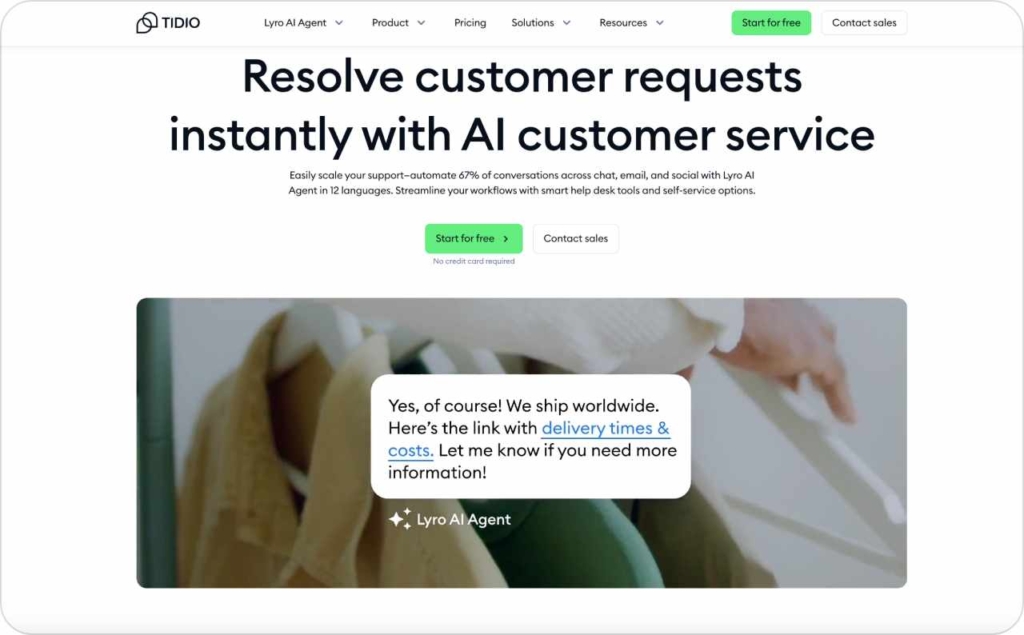
How to implement AI marketing in your Shopify store
Setting up AI marketing in Shopify is faster and easier than most store owners expect. You don’t need coding skills or a developer. With the right tools and a step-by-step plan, you can automate key marketing tasks, like email flows, chat support, pricing, and product recommendations, in under an hour.
This section follows a real-world workflow. Each layer builds on the last. You’ll be able to scale your store’s marketing without hiring more people or writing complex rules.
Step 1: Choose the right tool for your store
Start by picking one tool that solves your biggest time drain. Want to automate product descriptions?
- Use Shopify Magic — it’s built into your dashboard. Need support that runs 24/7?
- Chatbots like Tidio or Octane AI are fast to install and easy to customize. For smart email flows, try Klaviyo AI.
- Want video ad creatives fast? Zeely AI turns your product URLs into high-performing videos in minutes.
Some apps are built directly into Shopify. Others are third-party tools you’ll find in the App Store. Most take just 10–30 minutes to set up.
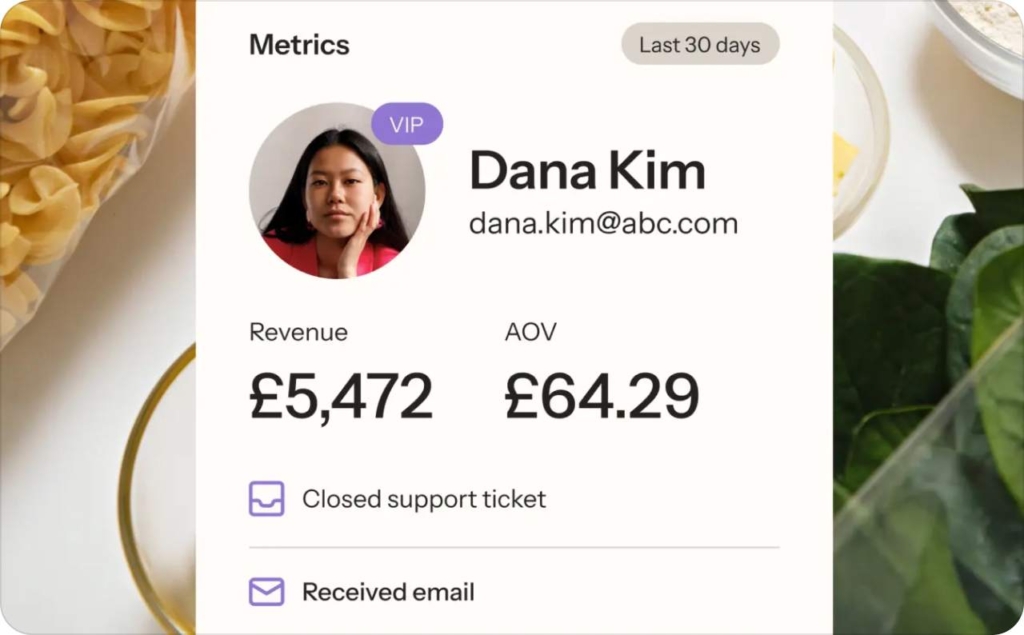
Step 2: Install the app and connect your store
Head to the Shopify App Store, search for your chosen AI tool, and click Add App. You’ll find it later under your Shopify admin in the Apps tab. Once installed, the tool walks you through setup, connecting to your product catalog, customer profiles, and real-time store data.
Most platforms offer a free tier or trial, so you can test features before committing to a paid plan.
Step 3: Set up your data and automations
AI tools rely on data to make decisions. Sync your product catalog, enable customer behavior tracking, and grant the app permission to access order or inventory data. This allows the system to optimize based on browsing habits, cart behavior, and sales performance.
To start, build a few chatbot flows, configure dynamic pricing rules, and load email triggers or product blocks.
Tip: Always test before going live. AI reacts fast and if you’ve set up pricing rules or chatbot responses incorrectly, it could confuse customers.
Step 4: Personalize the experience
You stay in control of your brand voice. AI tools let you set tone, messaging, trigger timing, and logic. Want your chatbot to be casual? Formal? Add your own style. Want to offer a discount on slow-moving items? Build that logic into the dynamic pricing rules.
Once everything is customized, preview your flows and test again.
Step 5: Launch, monitor, and scale
Go live once you’ve tested each element. Then, use your AI dashboard to track engagement, sales, and performance. These tools provide real-time insights, so you’ll know what’s working and what needs adjusting.
All tools covered here follow Shopify’s privacy and security standards. Your customer data stays inside your store’s ecosystem, no external tracking or third-party data sharing.
Tip: Think of this process as your AI marketing workflow diagram — a system that runs your emails, content, pricing, and support on autopilot, while you focus on growth.
Now that your Shopify AI tools are up and running, it’s time to figure out which ones are the best fit for your store’s strategy, team size, and long-term goals. Let’s break down how to choose smart.
Tips for choosing the right AI tools for your Shopify store
The smartest AI tool is the one that earns back its cost and keeps scaling with you. To spot that winner, grade each app on four points: ROI visibility, integration ease, automation depth, and pricing flexibility.
Set clear ROI rules
Aim for a payback window of one sales cycle — about two weeks for most stores. If a tool adds $500 in revenue and costs $100, you’re up 400 %. Most platforms, like Klaviyo, Zeely, or Tidio, surface that math in their dashboards or sync with Google Analytics so you can track every order back to the campaign.
Check trust signals
Look for a Shopify App Store rating above 4.5, public case studies, and a support-response promise under 24 hours. Reliable vendors publish uptime stats and GDPR/CCPA policies, proving customer data stays inside your Shopify ecosystem.
Gauge real effort
Most apps install in one click, and basic setup takes 30–60 minutes. Plan another hour to customize flows and branding. If the learning curve feels steeper, move on.
Watch the fine print
Many AI tools start free, then charge for higher email volumes, SMS sends, or premium templates. Monthly billing and 14-day refunds make it easy to cancel if ROI slips.
Score, compare, decide. With a simple framework you’ll sidestep decision fatigue and back tools that fit today’s budget while fueling tomorrow’s growth.
Final thoughts & future trends in AI marketing for Shopify
AI on Shopify is moving from “nice to have” to mission-critical, and the pace isn’t slowing. Analysts at Forrester predict that predictive conversions will double average order values for AI-led stores within three years. Gartner adds that by 2027, voice commerce will drive 20 % of mobile checkouts, giving smart speakers and in-app voice search a direct line to your product catalog.
Visual search is coming fast, too. Shoppers already snap a photo, upload it, and expect an instant product match. AI-powered image recognition will soon pair those photos with dynamic pricing and real-time inventory, letting your store surface the best variant before the shopper scrolls away.
These trends share one theme: data gets smarter, and your marketing feels personal without manual work. That’s why tools like Zeely AI matter today. You can test Zeely’s video-ad generator on a single product page, measure the lift, and be ready for the next-gen features the platform rolls out — voice-ready creatives, AI-guided visual search tags, and conversion forecasts that update by the hour.
If rapid change worries you, start small. Launch one AI feature, watch the metrics, then expand. The merchants who experiment now will own tomorrow’s search results, voice queries, and visual feeds. Predict trends, evolve your strategy, and let next-generation AI tools handle the heavy lifting — so your Shopify store keeps growing no matter how the technology shifts.
Also recommended

